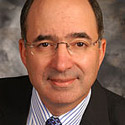02:29 PM
Regulating the Financial Services Industry Is a Balancing Act
Changing Landscape
This model, however, has changed. The NYSE's acquisition of Archipelago and the migration to the Hybrid trading model makes the auction-based market more like the Nasdaq market. In addition, brokerage firms have consolidated their listed and OTC trading, reorganizing their trading desks by sector. Now, traders focus on trading bio-techs, communication stocks and/or technologies; ifirms such as Hewlett-Packard and Dell no longer are traded by different folks.
As these models (both markets and trading desks) converge, joint regulators may be less effective than a single overseer. With DMA, EMS platforms and investment strategies migrating toward baskets, lists, programs and algorithmic strategies, different regulators are currently responsible for looking at different parts of the same transactions. For example, a tech basket including companies such as HP, EMC, IBM, Dell, Intel and Sun would have split oversight. The listed tech companies (HP, IBM and EMC) would be overseen by the NYSE, and the OTC companies (Dell, Intel, Microsoft and Sun) would be overseen by the NASD. Looking at this transaction by exchange would not give either regulator sufficient perspective on the complete investment and/or trading strategy to provide proper oversight.
Regulation is a pendulum, swinging between leniency and excess. While the industry typically roots for leniency, and watchdogs pull for regulation, finding the right balance is critical for all. Without a flexible and operable capital market, capital will flee; but without trust, investors will flee. Balancing this knife edge is difficult but important, especially since it is very easy for legislators and regulators to regulate to the last scandal. After all, that's the way politicians seem to work best.
Larry Tabb is the founder and CEO of TABB Group, the financial markets' research and strategic advisory firm focused exclusively on capital markets. Founded in 2003 and based on the interview-based research methodology of "first-person knowledge" he developed, TABB Group ... View Full Bio





























